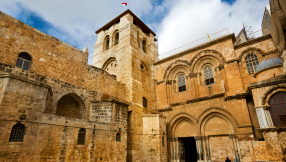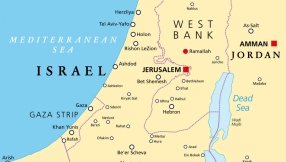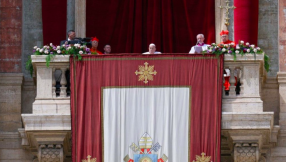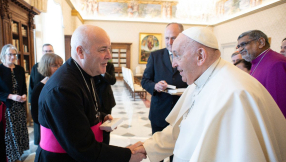
Conservative commentator Douglas Murray’s criticism of the Church of England and the Roman Catholic Church for failing to speak up for persecuted Christians deserves widespread attention.
The associate editor of the Spectator magazine and author of The War on the West devoted his Douglas Murray Direct Address, posted on X, to the Islamist persecution of Christians in the Middle East and Africa.
He said: “In recent weeks in one incident alone in Congo 70 Christians were abducted and beheaded by Islamist militia … In more recent days in Syria the ancient Christian Churches of that country have once again been under attack.”
He posed the question: “Why is there so little attention to this? Why is there so little news or reaction to atrocities like those I have just described?”
He developed his answer: “You might not have noticed but there isn’t actually an Archbishop of Canterbury at the moment … But if you do go to the ongoing social media threads of Lambeth Palace and so on, you will find the usual pabulum.
“You will find a lot of interfaith stuff, you will find a bit of green stuff thrown in, of course, but next to nothing about the persecuted Christians of Syria, of Congo, and elsewhere. It’s a very strange thing to my mind. It’s an odd thing to skip.”
He continued: “There is a Pope at the moment. He’s not well and could be forgiven for not being more outspoken perhaps for the time being. But it’s still rather striking to me that the Roman Catholic Church also remains relatively silent about the killing and persecution of members of its own faith community.”
The reason for the failure to speak up, he said, is “very straightforward".
"They’re very scared and arguably they have some right to be," he said.
Murray cited the furore after Pope Benedict’s famous Regensburg Address in 2006 when he quoted a 14th Century Byzantine emperor who “said something disobliging about the way in which Islam had been spread as a religion from the beginning, noting by the way that Islam had very often been spread by the sword.”
This reference produced a violent reaction, which Murray satirically described as caused by people around the world, who were offended by the Pope’s remark, stating: “You’ve got to say my religion is peaceful, otherwise I might kill you.”
Murray said: “There were attacks on Christians in the wake of the Regensburg Address around the world. In the West Bank and Gaza, Palestinian Muslims attacked Christian churches. In Iraq Assyrian Christians were also attacked and kidnapped and in Somalia a 65-year-old nun was killed by some brave jihadists who again were trying very hard to prove the peacefulness of their particular faith.”
This violent reaction led to “Pope Benedict and indeed most of the Western Churches deciding not to tread into this terrain again” in a bid to prevent further attacks on Christians in Muslim countries.
Nevertheless, Murray argued, “the silence of so many leaders of the Western Churches about the situation of Christians in the persecuted Churches is a subject which is deeply, deeply troubling”.
He observed that “as long as Christian leaders in the West remain so silent when Christians are being chased out of countries, massacred, beheaded, butchered in their places of worship” many people around the world will continue to say: “If the Church doesn’t speak up for its own, why should we speak up for it?”
He concluded: “It would begin to solve the problem if the heads of the Churches in the West remembered their persecuted brethren and actually said something on their behalf and for them.”
Murray’s point is surely valid. When, for one example, the leaders of the Church of England, which is the established Church and whose bishops have a platform in the House of Lords, fail to speak up about the Islamist persecution of Christians, news organisations are much less likely to cover the stories.
Furthermore, if the leaders of the Western Churches do not highlight the issue, the members of these denominations are also much less likely to highlight it in their own local churches. This in turns feeds into a culture of comfortable, compromised, socially respectable Christianity in the Western Churches, a watered-down version of the faith which fails to impact on the nations these Churches are supposed to be transforming through the Gospel.
So, for their own spiritual well-being as well as for the sake of their suffering brothers and sisters in the faith, the Western Churches need to be highlighting the reality of Islamist violence against Christians.
Douglas Murray has done Western Christianity a great service. But will the Churches listen?
Julian Mann is a former Church of England vicar, now an evangelical journalist based in Lancashire.













